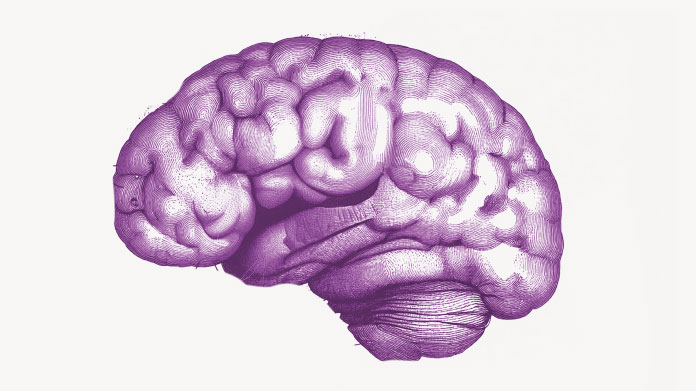Five tips for preserving your memory
Scientific studies all confirm that cerebral decline should not be seen as inevitable! There are things you can do to protect, boost and stimulate your cognitive function. Here are five tips to help you preserve your memory.

Stimulate your memory by all possible means
Cognitive decline is a reality but not an inevitability. It can be delayed, and even reversed, by focusing on neuron plasticity. This is the ability of nerve tissue to rebuild and remodel itself over time. In other words, connections between brain cells can be stimulated, and even regenerated.
Here are some ways of stimulating and preserving your memory:
- Mentally summarise your day;
- Recall the week’s high points;
- Share memories with your loved ones;
- Do crosswords;
- Play word games;
- Learn the words to a song;
- Memorise a poem;
- Take part in drama;
- Etc.
There are also products that can help stimulate cognitive ability. Some, such as the nootropic mushroom Hericium erinaceus, better known as Lion’s Mane Mushroom, have been used for centuries for their benefits on brain cell function.
Exercise daily
The benefits of physical activity are many: it has been comprehensively shown to help combat cognitive decline. Engaging in daily exercise stimulates oxygenation of brain cells. Many forms of physical activity exercise the memory.
Take dancing, for example. It requires you to memorise then reproduce the movements and the sequence in which they happen. It’s the same for yoga, Pilates, gymnastics and water aerobics. And don’t forget that physical activity is not just about sport. Gardening is an excellent example of how physical activity can mobilise the memory. Combining physical and mental activity is without doubt one of the best ways of preserving memory.
Pay attention to your diet to preserve your memory
The brain is a complex organ that uses huge amounts of energy: it requires, on average, 10 times as much energy as the body’s other organs. In itself, the brain monopolises up to 40% of the body’s carbohydrate intake. We are often advised to prioritise dietary carbohydrates with a low glycaemic index (GI) (pulses, wholegrains …) which gradually release glucose into the blood.
The brain also needs fats, particularly omega-3 fatty acids. These are components of brain cell membranes. A lack of omega-3 has been shown to have an effect on brain function and to promote cognitive disorders. A good intake of docosahexaenoic acid (DHA) is especially important for the brain as research shows it contributes to normal cerebral function and preservation of memory.
Ensure an adequate intake of choline to keep your brain activity in top form
Choline is a molecule that’s frequently overlooked. Often referred to as vitamin B4, it’s essential for maintaining good cerebral function. It is in fact required for synthesising acetylcholine, a neurotransmitter involved in learning and memory. Choline is found in certain foods such as eggs, and there are also dietary supplements available such as Choline Complex, a product that offers three bioavailable forms of the nutrient.
Safeguard your memory by neutralizing free radicals
Free radicals are among the body’s key enemies. Accumulation of these oxidative elements causes significant cell damage, and brain cells are no exception. This is why we’re often advised to make use of the protective power of antioxidants, particularly curcumin in turmeric, anthocyanins in berries, epigallocatechin gallate in green tea and the famous resveratrol in grapes. These valuable antioxidants combat free radical attack and constitute natural allies for the brain.
Keywords
21 Hours
great products and prices
great products and prices
Marie
6 Days
Easy to navigate site
Easy to navigate site, had what I was searching for, good price. easy order-check out
James Tucker
12 Days
My skin is clearing up nicely!
Pretty good for my skin so far.
Christian
15 Days
The new packaging is excellent
The new packaging is excellent - finally! No more squashed boxes and torn envelopes.
GORAN
15 Days
Great Product
Great Product
Larry Garrett
20 Days
Quick shipping
Quick shipping; good price. No issues!
Mary McCarty
21 Days
Thr product is very good and is helping…
Thr product is very good and is helping me on my health. Then is always on time
LUGO Luz
24 Days
Buying was fine
Buying was fine. I had problems with the website not recognizing my login info, and had to call to get it fixed. Other than that, everything was good.
David S. Clark
24 Days
Your super maca and super ginseng are…phenomenal
Your super maca and super ginseng are phenomenal supplements that compliment each other when taking them together. Fantastic feeling of well-being and lots of mid day energy without the crash.
Keith Mason
27 Days
I have had amazing results with every…
I have had amazing results with every supplement I've purchased. I am extremely satisfied with this company
kirstin Torres
27 Days
Fine products
Fine products . They are on the leading edge of online supplements. The only issue -so far-is they sometime run out of subscription items.
Jason Argos
29 Days
The ordering process is very user…
The ordering process is very user friendly and the products always come in a timely manner.
CARTER Rhonda
31 Days
The price for Dr
The price for Dr. Pero's AC-11 is reasonable and in line with his views. (my former colleague). Keep it pure.
CAMPBELL Clayton
33 Days
Right on every time.
Right on every time.
Arthur Nicholas
36 Days
They are cheaper than everyone else and…
They are cheaper than everyone else and the shipping was fast. Great company.
Patricia Adams




